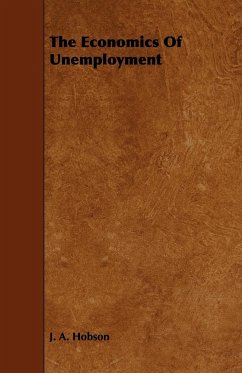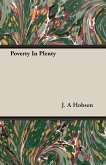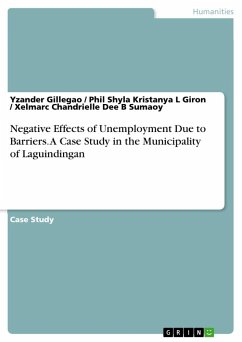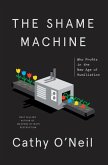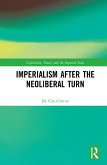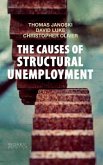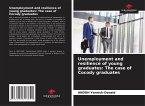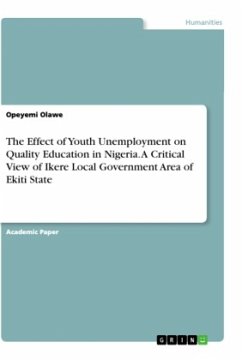John Atkinson Hobson (1858 ¿ 1940) was an English social scientist and economist most famous for his work on imperialism¿which notably had an influence on Vladimir Lenin¿as well as his theory of underconsumption. His early work also questioned the classical theory of rent and predicted the Neoclassical "marginal productivity" theory of distribution. In his 1922 essay ¿The Economics of Unemployment¿, Hobson looks at the subject of unemployment, exploring its causes and effects as well as the measures that should be taken to mitigate it. This fascinating and influential volume is highly recommended for those with an interest in economics, especially the economic history of Britain and Europe. Contents include: ¿A Limited Market¿, ¿The Failure of Consumption¿, ¿The Balance of Spending and Saving¿, ¿The Psychology of trade Fluctuations¿, ¿Surplus Income the Cause of Fluctuations¿, ¿Wage Reduction as Remedy for Depression¿, ¿Credit as a Factor in Fluctuations¿, ¿The Douglas Theory¿, etc. Many vintage books such as this are becoming increasingly scarce and expensive. We are republishing this volume now in an affordable, modern, high-quality edition complete with an introductory chapter from Hobson's essay ¿Problems of Poverty¿.
Hinweis: Dieser Artikel kann nur an eine deutsche Lieferadresse ausgeliefert werden.
Hinweis: Dieser Artikel kann nur an eine deutsche Lieferadresse ausgeliefert werden.

